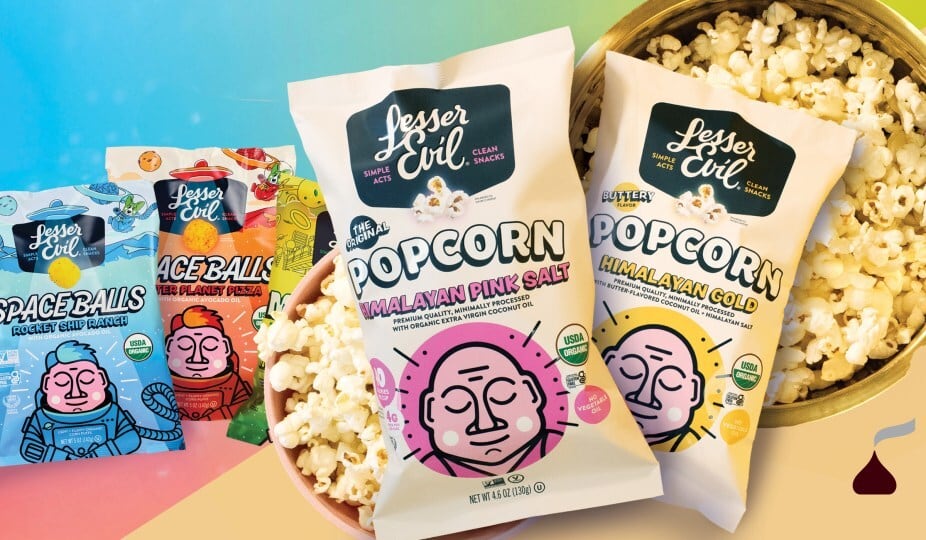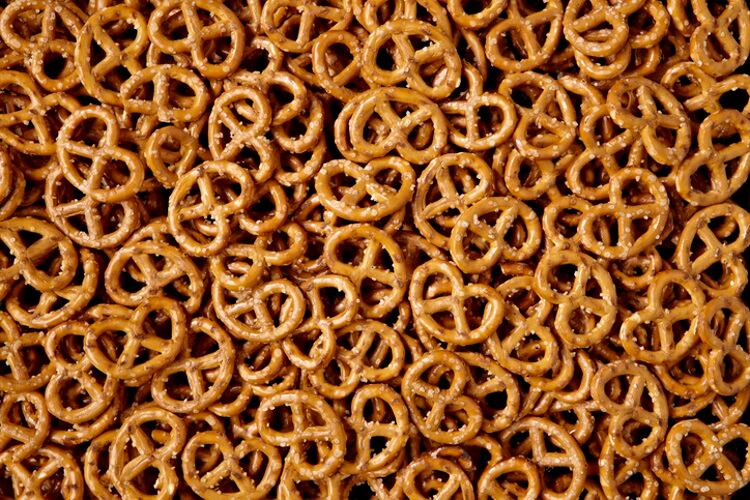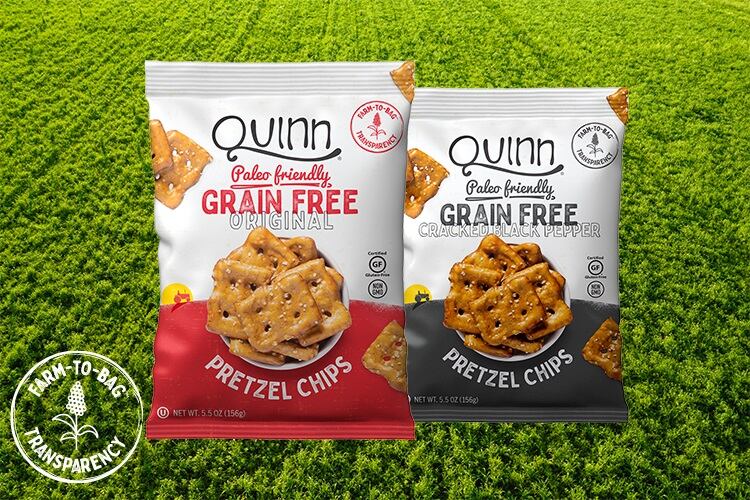Key takeaways:
- Hershey’s acquisition of LesserEvil strengthens its fast-growing salty snacks portfolio with a credible organic brand.
- The deal gives LesserEvil broader distribution and manufacturing support while keeping its leadership and clean label recipes intact.
- The move raises the stakes in the BFY salty snacks aisle as retailers and smaller brands adjust to a Hershey-backed competitor.
Hershey has now closed its deal to buy LesserEvil, the organic popcorn-and-puffs brand that’s gone from a niche kettle-corn side project to a familiar face in the better-for-you aisle.
On the surface it looks like a strange match: a giant from Pennsylvania best known for chocolate bars teaming up with a company that talks a lot about extra-virgin coconut oil and clean ingredient lists. But when you look at what Hershey’s been doing over the past few years, the deal makes more sense than it seems at first glance.
The truth is Hershey hasn’t been a ‘chocolate-only’ company for a while. It’s been easing into salty snacks at a steady pace, almost quietly. SkinnyPop was probably the point where people outside the industry first noticed it. Dot’s Pretzels showed that that move wasn’t a one-off. Pirate’s Booty made it clear Hershey wasn’t dabbling – it was building a portfolio. In fact, Hershey says its salty-snacks arm grew roughly one-and-a-half times faster last year than during the three years prior. That’s the kind of growth companies pay attention to.
LesserEvil brings a slightly different energy to the mix. It’s a clean label brand but not in a way that feels preachy or clinical. The packaging feels friendly, almost handmade. The flavors can be straightforward or a little odd, and that’s part of why people like them. The brand talks about organic standards, oils, sourcing and all the BFY topics shoppers care about, but it does it in a way that doesn’t overwhelm you with health talk. That balance – healthy enough, but still snacky – is something Hershey didn’t have in its salty lineup.
One thing Hershey’s done right is choosing to keep LesserEvil’s leadership team where it is. It’s hard to underestimate how much a brand’s voice comes from the people running it. If you switch that out too quickly, the personality disappears. LesserEvil’s customers pay extremely close attention to ingredient labels and textures, so Hershey can’t afford to do a big overhaul. It’s already said the ingredients aren’t changing, which is important. That audience will know if something’s off before the company even says a word.
Hershey’s direction looks clearer now
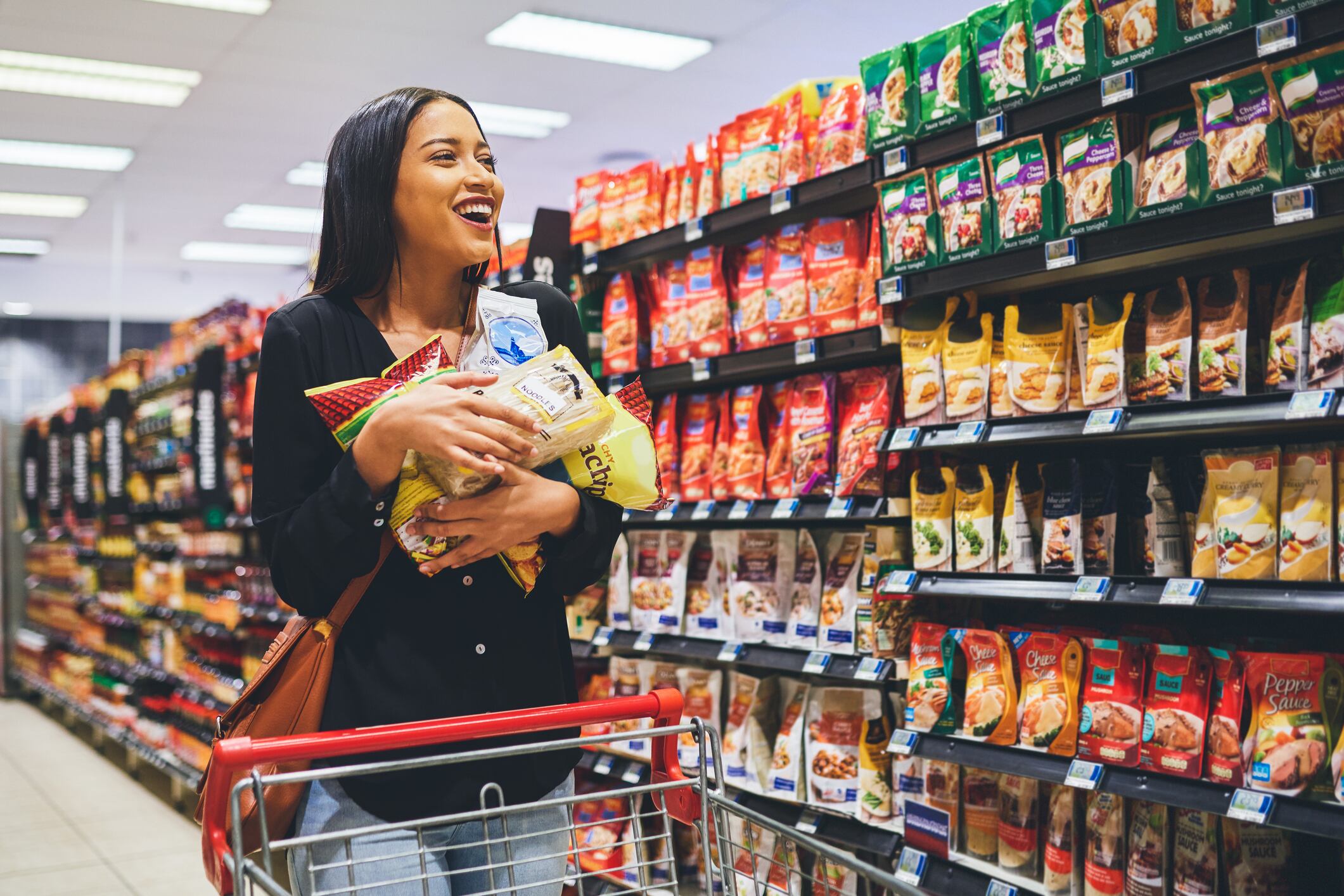
This deal basically confirms something Hershey’s been hinting at for years. The company’s not abandoning chocolate, but it’s reshaping itself around how people snack today. Modern snacking habits have changed, with people grabbing quick bites throughout the day. And salty snacks just fit that pattern. Popcorn at your desk. Pretzels in the car. A bag of puffs on the couch after dinner. People eat salty snacks in those everyday gaps where chocolate doesn’t always land.
That’s why LesserEvil makes sense. It’s not too niche, not too mainstream either. It sits somewhere in the middle and still has room to grow. Hershey also gets a brand that moves faster than large companies usually do. LesserEvil plays with new flavors all the time – sometimes ideas stick, sometimes they don’t, but the brand doesn’t drag its feet. If Hershey lets them keep operating that way, it gains a sort of inhouse test lab for trends.
And while nobody outside the industry ever talks about manufacturing, it’s a huge part of why this acquisition matters. Most BFY brands hit the same problem sooner or later: demand grows faster than production capacity and they end up out of stock or forced to slow down. Hershey’s scale solves a lot of that. With bigger plants, stronger supplier networks and better forecasting, it can help keep shelves consistently stocked – something retailers really care about.
The BFY snack aisle is going to shift
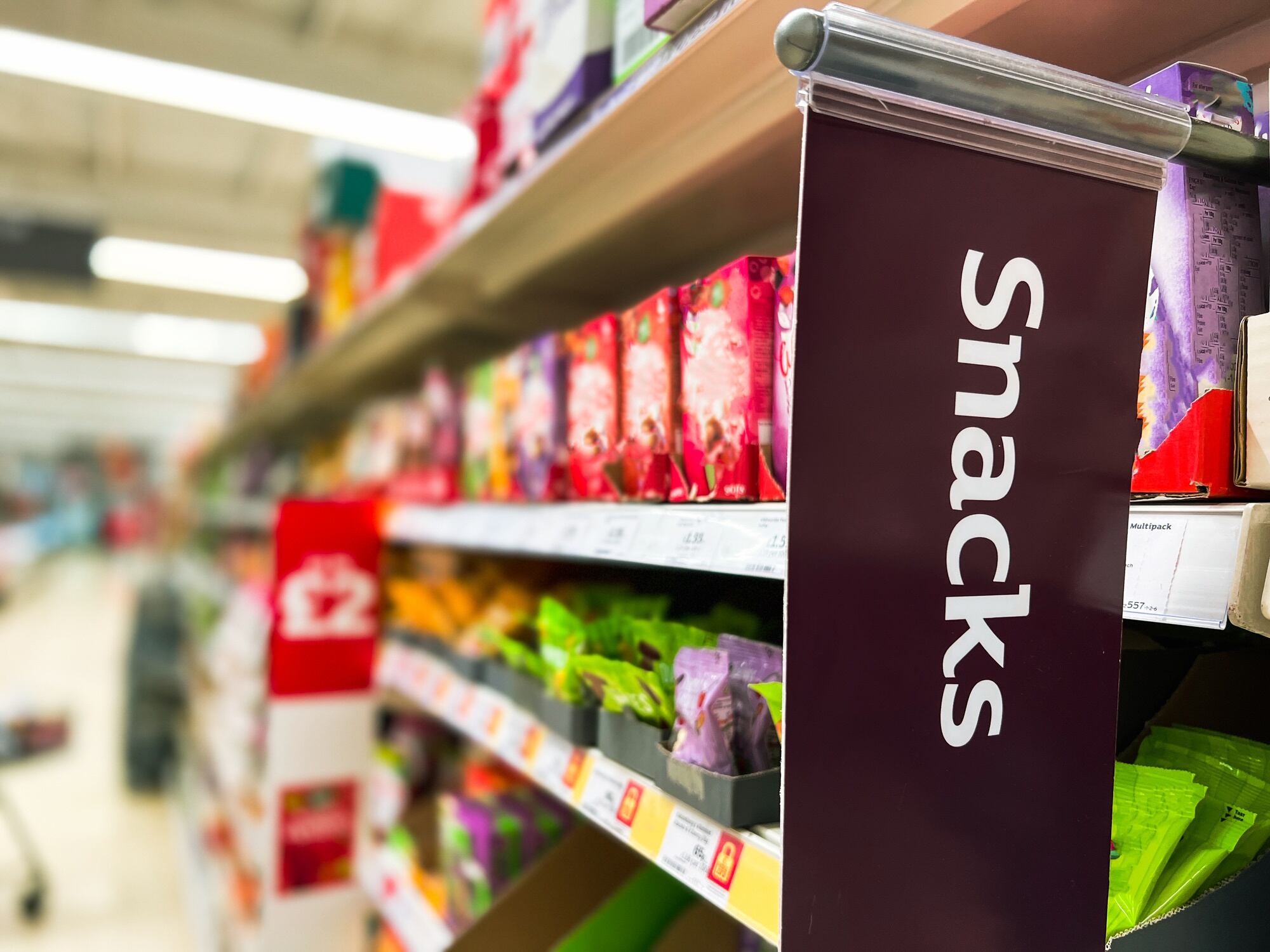
It’s safe to say this deal will ripple through the better-for-you salty-snack space. LesserEvil already had strong visibility, especially in natural retailers and in the premium end of mainstream stores. Now there’s Hershey behind it, which changes expectations. Retailers respond quickly to brands backed by companies with deep pockets and strong logistics. Shelf space shifts. Promotional support changes. Competitors notice.
Smaller BFY brands might feel the pressure the most. Not because Hershey is trying to push anyone out, but because the bar rises. ‘Organic’ used to make a brand stand out; now it’s a starting point. If a company like Hershey can offer clean label snacks with national distribution, every other BFY brand has to work harder to define what makes them different.
The biggest unknown here is how LesserEvil’s most loyal consumers will react. They know exactly what the snacks tasted like before the deal. They know the crunch level, the seasoning level, the type of oils used. They compare things. They talk about changes on social media. And when they feel a brand’s shifted its values or cut corners, they’re fast to point it out.
If Hershey holds that line, this could end up being a smooth integration. LesserEvil gets the reach it’s been missing, plus the stability that comes from being backed by a major player. Hershey gets a brand with an identity that actually means something to shoppers – something you can’t buy off the shelf. And together they can probably push into more retailers and channels than LesserEvil could’ve reached alone.
Right now, the confectionery giant’s salty strategy is clearly more than a side project – it’s looking like a path to staying relevant in a snacking landscape that’s changing fast. Chocolate may still beat its heart, but salty snacks are starting to look like the future.


